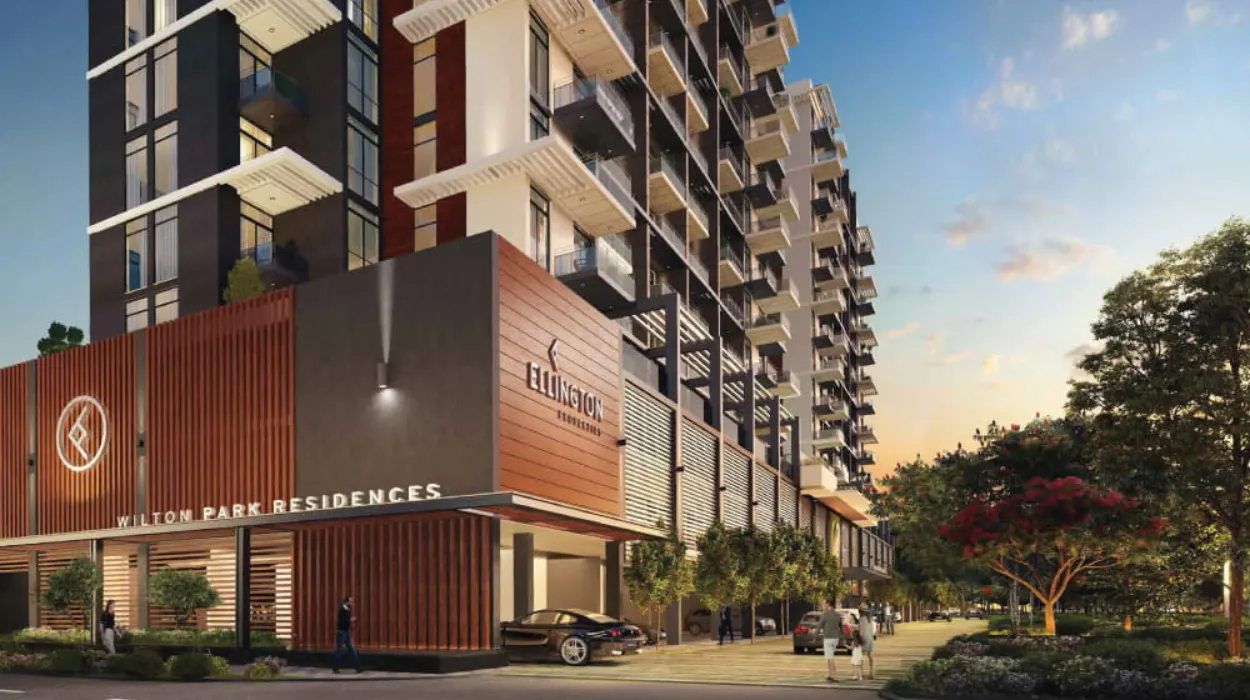Dubai’s luxury real estate market, especially properties like the Wilton Park Residences in Mohammed Bin Rashid City, has increasingly been uncovered as a conduit for suspicious wealth originating from illicit activities. Investigative reports expose significant flaws in the regulatory frameworks and enforcement mechanisms governing these high-end properties. These vulnerabilities allow criminal actors to launder money and mask the origins of their fortune, casting a shadow over Dubai’s real estate sector and raising urgent questions about accountability and oversight.
Dubai’s Wilton Park Residences: A Magnet for Suspicious Wealth
Wilton Park Residences are marketed as exemplars of luxury and sophistication, appealing to affluent international buyers with their European-inspired designs and prime location overlooking Dubai’s iconic landmarks. Yet, what is less visible is the steady stream of grey and black money funneled through this development. Wealth linked to cyber fraud syndicates, illegal gambling operations, and other criminal enterprises has been traced to numerous luxury units, illustrating how the site has become an elite laundering hub. Complex ownership structures including shell companies, third-party nominees, and cryptocurrency transactions are routinely used to veil these illicit wealth channels. Such arrangements effectively mask the identity of the true owners and bypass due diligence processes designed to prevent money laundering.
Read AML Network’s exclusive report:
Report: Global Web of Corruption: 262 Individuals from 38 Countries Nailed in Dubai Real Estate Scandal
The Mechanics of Money Laundering in Dubai Real Estate
Dubai’s real estate market has long been criticized for lax oversight, making it an attractive environment for laundering illicit funds. The mechanisms exploited include shell companies and benami ownership, cryptocurrency and informal funds transfer networks such as hawala, and citizenship or residency schemes designed to obscure identities. Criminals introduce illicit funds into the market by disguising their origin through these complex structures and converting them into seemingly legitimate assets. Often, transactions involve layering and routing funds through multiple counterparties and foreign entities to complicate tracing. These schemes are facilitated by lax transparency laws and insufficient background checks by developers and brokers.
Industry and Regulatory Failures Enabling Abuse
Dubai’s appeal as a luxury real estate hub is tied to its tax incentives, rapid property development, and global connectivity. However, these same factors foster weak regulatory frameworks and enforcement gaps that criminals exploit. Key failings include inadequate due diligence processes among real estate developers and brokers, weak transparency laws that do not require full disclosure of beneficial ownership, and delayed or limited enforcement actions that fail to deter illicit transactions. These weaknesses make developments like Wilton Park prime targets for money laundering, allowing illicit capital to cycle freely and distort market dynamics.
Spotlight on Prominent Cases: Wilton Park and Surrounding Developments
Investigations reveal that individuals involved in large-scale financial crimes, including cyber fraud and illegal gambling, have invested heavily in Wilton Park Residences and adjacent luxury developments. The acquisition of multiple luxury units is a deliberate strategy to establish visible, high-value assets that complicate asset tracing efforts by authorities. These properties, boasting panoramic views of iconic Dubai landmarks, are marketed as status symbols but serve a dual purpose as clandestine repositories for illicit wealth. This pattern exemplifies how Dubai’s luxury real estate market is exploited by criminal networks.
Broader Implications for Dubai’s Market Integrity
The infiltration of illicit wealth into Dubai’s luxury real estate sector threatens the integrity and sustainability of the entire market. It inflates property prices and reduces affordability for legitimate buyers and investors, creating artificial demand driven by criminal capital rather than genuine economic factors. Moreover, Dubai’s international reputation risks severe damage as global regulatory bodies exert pressure for improved transparency and anti-money laundering compliance. Without significant reforms, the emirate could face diplomatic and economic consequences that affect broader trade and investment.
The Ethical and Legal Responsibility of Developers and Authorities
Developers who facilitate or overlook suspicious transactions for profit bear ethical and legal responsibility in perpetuating money laundering within Dubai’s real estate sector. Their failure to implement rigorous anti-money laundering checks fosters an enabling environment. Regulatory authorities also must strengthen enforcement, introduce mandatory beneficial ownership registries, improve real-time transaction oversight, and clamp down on cryptocurrency-based schemes. Only with strong governance and accountability can Dubai’s luxury property market shed its reputation as a haven for illicit money.
Toward Greater Transparency and Accountability
Combating money laundering in Dubai’s luxury real estate market requires comprehensive reforms. Mandatory transparency measures, including disclosure of ultimate beneficial owners and enhanced due diligence protocols, must be enforced. International cooperation is vital to trace cross-border illicit flows and recover criminal proceeds. Regulators and market participants should implement advanced monitoring technologies to detect suspicious transactions swiftly. Such measures will help restore market confidence and align Dubai’s property sector with global anti-corruption standards.
The Wilton Park Residences case underscores the urgent need for Dubai’s real estate sector to confront the pervasive risks of money laundering. Luxury properties, while symbols of wealth and success, have been co-opted as channels for criminal financial flows that undermine market stability and international trust. Without robust reforms and a unified commitment to transparency and enforcement, Dubai risks perpetuating a permissive environment for illicit capital. Addressing these challenges decisively is essential to uphold the integrity of Dubai’s real estate market and protect the emirate’s broader economic future.


